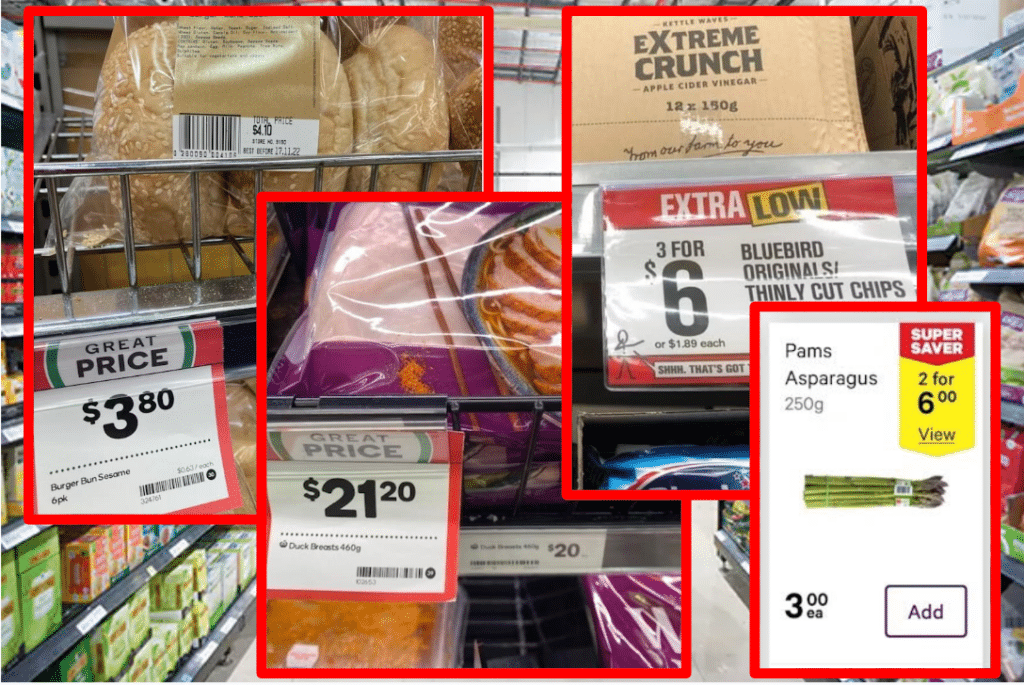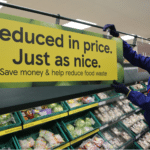
When it comes to mislabeled prices, misleading ads and confusing promotions at the grocery store, it’s often buyer beware. Sometimes civil penalties may apply in the most egregious cases.
But is it a crime? The kind where someone can end up doing hard time for charging you too much for your Cheerios?
It could be, half a world away, where a major grocery chain and two other supermarkets are being criminally charged for “inaccurate pricing and misleading specials” that may have been illegal. And if you’ve ever been overcharged, confounded by a confusing sale or otherwise misled into paying more than you expected, this case may give you hope that at least some grocers are being taken to task over it.
It’s all happening in New Zealand, where the country’s Commerce Commission has announced plans to file criminal charges against Woolworths NZ, New Zealand’s second largest grocery chain, and two branches of Pak’nSave, part of the country’s largest grocery chain.
“Supermarkets have long been on notice about the importance of accurate and clear pricing and specials, and we’re not satisfied with the continuing issues we’re seeing across the industry,” Commerce Commission Deputy Chair Anne Callinan said in a statement. “Shoppers should have confidence that the price they see will be the price they pay, and specials really are special.”
Federal regulators launched an investigation after the advocacy group Consumer NZ filed a complaint about the grocers’ pricing and promotional practices. Consumer NZ invited shoppers to send examples of mispriced items and misleading specials, and hundreds responded. Complaints included dozens of situations where items rung up for more than the shelf price, “buy two and save” deals where the items would actually have been cheaper if purchased individually, inflated and fictional “regular prices” designed to make sale prices look much better in comparison, and products advertised as being on sale when they were actually selling for their regular price.
Just take a close look at the examples pictured above, that sharp-eyed shoppers sent in. Burger buns where the price on the shelf and the price on the product don’t match. The “great price” for duck breasts is higher than the shelf price. The “extra low” 3 for $6 deal is worse than buying them individually for $1.89 apiece. And the “super saver” price of two asparagus bunches for $6 offers no savings at all off the regular price of $3 each.
Consumer NZ cited recent research, which found that 60% of grocery shoppers have noticed pricing inaccuracies in stores, but relatively few complain about it. “It’s clear that more proactive measures are needed, as relying on rushed or confused consumers to raise complaints won’t reveal the full extent of the problem,” Consumer NZ’s chief executive Jon Duffy said in a statement.
“Pricing accuracy is a consumer right,” the Commerce Commission’s Callinan said. “The major supermarkets are large, well-resourced businesses that should invest the time and effort to get pricing and promotions right.”
Woolworths is already under scrutiny in neighboring Australia, where government regulators have filed civil actions against the grocery chain and a competitor, accusing them of making “misleading claims about illusory discounts” by raising regular prices on hundreds of products, lowering them slightly and calling it a “sale.”
As for the claims in New Zealand, Woolworths NZ Managing Director Spencer Sonn acknowledged that “sometimes errors occur,” but “we know how important it is that our customers can trust that the prices we advertise, or have on our shelf labels, are what they pay at the checkout.” He pointed out that the chain is in the process of introducing electronic shelf labels to all of its stores, which will help “ensure that there are no paper-based shelf label errors” going forward.
A spokesperson for Foodstuffs, the parent company of Pak’nSave, noted that its stores “process millions of transactions a day, and while errors are relatively rare, we agree that any inaccurate pricing is unacceptable.”
Consumer NZ praised the government’s enforcement action, calling it the “result of people power.” And the Commerce Commission hopes the move will get the grocery chains’ attention. “The charges we’re filing against major supermarket brands are to remind all supermarket operators that we expect them to fix ongoing pricing accuracy issues and implement better processes to prevent issues like these in the future,” Callinan said.
And if consumer complaints weren’t enough to get the problems addressed – regulators hope that criminal complaints just might.
Image sources: Consumer NZ










